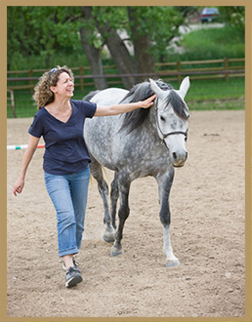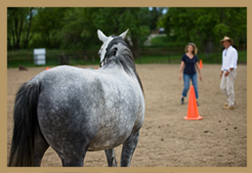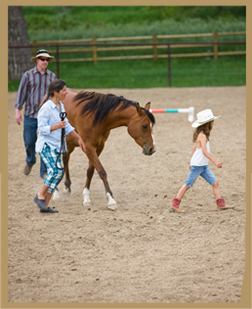Whoever you are and whatever brings you to psychotherapy, horses can help you develop transformative insights and elicit the change in your life that you have been yearning for. Clients in equine-facilitated psychotherapy typically seek help for the full range of issues and challenges that psychotherapists have been working with in more traditional, talk-therapy settings, such as anxiety, depression, anger management, sexuality, PTSD, ADHD, challenges in the couple or family, existential issues, transition, sexual or physical abuse. All can benefit from the unique clinical contribution of equine-facilitated psychotherapy. The main difference with other modalities is the resonance between the human client and the equine facilitator.
unbiased teachers
Horses challenge you to step out of your comfort zone. You can fool therapists, but you can’t ever fool horses — they are big, intuitive, and they read right through you. Yet, horses are also curious, joyful, and honest. Horses help you manifest and work through what is relevant for you at this very juncture in your life. Be prepared to hear some truths, straight “from the horse’s mouth.” More importantly, horses are forgiving and non judgmental. They pay no attention to your looks, social status, bank account, race, gender, sexual orientation, political inclination, religious denomination or lack thereof. In this unique healing journey, horses will help you broaden your horizon, develop insights, discover your true self, build confidence, establish healthy boundaries, and tap into your inner resources. In short, they help you become who you truly are.
new life skills
In your interactions with horses, you learn and practice new skills, and discover deeper layers of yourself. Whatever you learn with horses will enrich and change your everyday life – at home, in your workplace, in your social relationships, and how you relate with yourself.
equestrian experience is not needed
Come with a beginner’s mind. Equine-facilitated psychotherapy and learning activities consist mostly of groundwork (as opposed to riding the horses).




